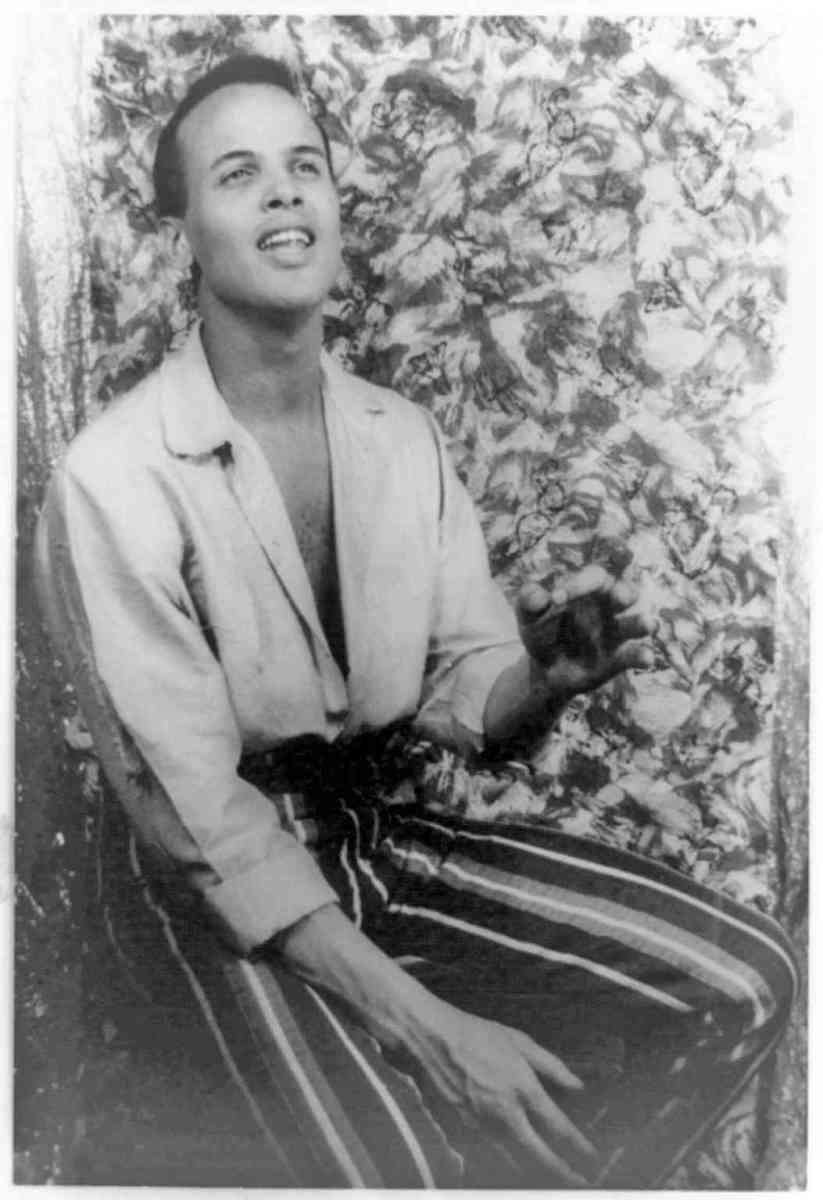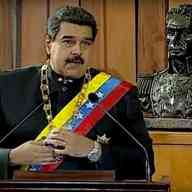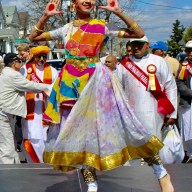The original king of calypso will have to take a back-seat to generations of performers yearning to honor the life and legacy of Harry Belafonte on the anniversary of his March 1, 1927 birthdate.
Actually, the legendary actor, singer, songwriter, author and activist is expected to be front and center inside Harlem’s Apollo Theater when hip-hop poet and Academy award winner Common, percussionist Sheila E., Grammy winner Maxwell, Gael Faye, John Forte, Talib Kweli, Thelma Plum, Yemen Blues Impact Repertory Theatre, Resistance Revival Chorus and Trinidad & Tobago’s acclaimed monarch the Mighty Sparrow hail the world’s first crowned king of the Caribbean genre on his 93rd birthday.
Slated to be present for the uptown celebration, the acclaimed icon will likely reminisce the momentous occasions he spent inside the landmark showplace and also his youthful frolics through Harlem where he was born and reared.
Born in the Village, Harold George Bellanfanti Jr., seemed to have had a charmed life from birth. For the record he was named in honor of his father, the senior namesake from the island of Martinique and Jamaican mother Melvine (Love) and by the time he was a teenager he had already scored a lead role with Harlem’s American Negro Theater.
Sidney Poitier was his understudy there but he studied alongside Marlon Brando and other notables.
In retrospect his timeline to success reads like an incredibly accomplished bucket-list to greatness. The fact he spent his early years in a remote country parish with his grandmother could have shaped much of the trajectory to his ambitious multifaceted life in America.
Reportedly, the matriarch he lived with from 1935 to 1940 was “the white daughter of a Scottish father who migrated to the island to oversee a plantation.”
His father’s father was “a Dutch Jew” who landed in the Caribbean after realizing he would not make his fortune in gold and diamonds.
On occasion the biracial, Caribbean offspring is known to reflect on his childhood experiences and there were trying times which tested his mettle.
And while those tales often engage audiences, generations fortunate enough to be invited into the nostalgia, seem fixated on a chorus he repeated — ”Day-O, Day-O day da light and mi wan’ go home.”
The hit refrain from the “Jamaica’s Banana Boat Song” captivated audiences in 1956.
A single from the album “Calypso,” the infectious tune soared to number five and remained on the charts for a record 31 weeks.
It reaped unprecedented sales of one million.
History records that its lyrical, folk melody prompted an accounting of future music sales and also attributed to the launching of a gala reward ceremony now acclaimed as the Grammy Awards.
The recording outsold those of Elvis Presley, the king of rock and roll.
Soon after Belafonte introduced “Mathilda,” “Jump in the Line” and other infectious Caribbean tracks.
He was dubbed the king of calypso.
Europeans were particularly endeared by the cadence and flow of the songs.
No other artists had ever popularized Caribbean music.
In retrospect, Belafonte talks candidly about German audiences and how at his concerts they embraced him and his import.
Despite nine plus decades, he has a way of informing crowds that is entrancing and even romantic.
Following success with calypso he compiled “An Evening With Belafonte” a variety of folk songs featuring a few interpretations of selections from cultures buoyed by memories of “Oh Danny Boy,” “When The Saints Go Marching In,” and “Hava Nageela.”
In 1958 he released “Belafonte Sings The Blues.”
He is acclaimed for recording gospel, show tunes, American standards, pop, world beat and simultaneously acted in Otto Preminger’s hit musical “Carmen Jones,” “Island in the Sun,” “Odds Against Tomorrow” “The World, The Flesh and the Devil” and others.
For sure testimonies of his portrayal will be recalled of a cowboy in 1972 with Poitier in “Buck and the Preacher.”
The Caribbean thespians paired again in 1974 for the “Uptown Saturday Night” feature. A decade later he produced and scored “Beat Street,” a hip-hop classic which explores the rise of the music genre.
Not one to relax through a decade he collaborated in the nineties with John Travolta for a dramatic “White Man’s Burden” and “Kansas City” in 1996.
His storied acting career can never be exaggerated. As late as 2018, he was tapped by director Spike Lee to portray an elderly Civil Rights pioneer.
Perhaps type-cast in parody of his humanitarian activism as a staunch dissenter of apartheid in South Africa; loyal supporter of like-minded SA singer Miriam Makeba, advocate for SA freedom fighter Nelson Mandela he also refused hefty offers to perform in Sun City, South Africa.
Belafonte is revered for his role in recruiting Hollywood celebrities to join Dr. Martin Luther King Jr., in protest of Jim Crow laws in the South.
A 2011 documentary titled “Sing Your Song” best details his journey from Bellanfanti to Belafonte. However, on the first day of March more than a few will be singing the praises of the first king of calypso.
Catch You On The Inside!

























